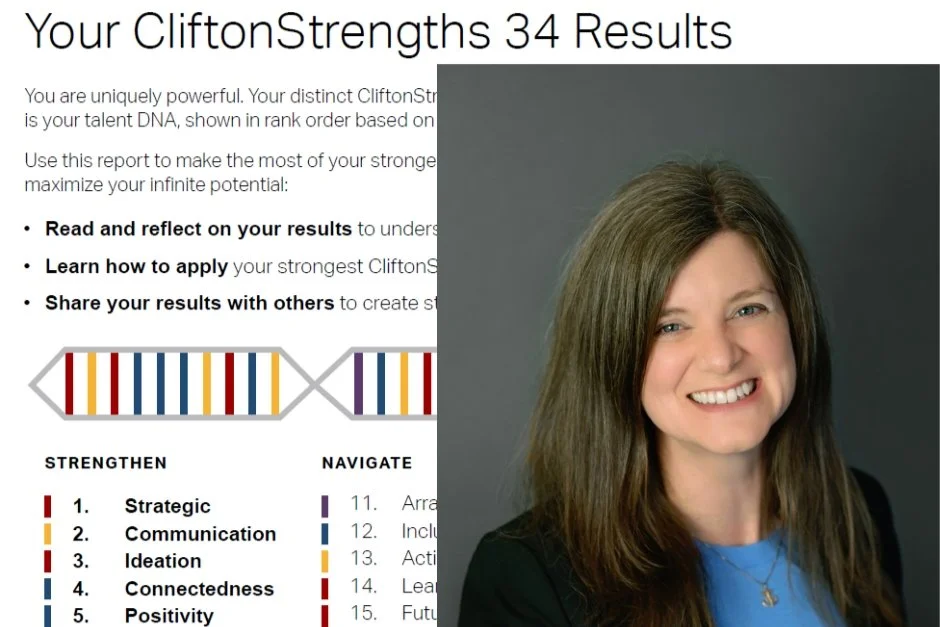What’s Your Pace
What’s the Pace of Your Life?
This spring, I hit a busy stretch. In many respects, it was wonderful: I got to travel to several places, work with many different people and groups, try out lots of different content, and bring in additional revenue.
On the downside, by the end of it (or maybe before the end if I’m being totally honest) I was exhausted, overwhelmed, and scrambling. I was struggling to keep up, and I felt like I was coming apart at the seams.
I was living at a pace that was too fast.
Vision for Life
How’s Your Vision?
When I was in 4th grade, I was getting pretty annoyed that the teacher’s writing on the chalkboard was so faint and fuzzy. Finally, one day I complained about it to a friend who sat next to me. She looked at me oddly and said, “I don’t know what you’re talking about. I can see what she’s writing just fine.”
Oh.
“Then I guess it’s me,” I realized.
Yes, that was the year that I got eyeglasses.
10 Tips for Habit Change
What’s one habit or behavior you wish you could change in your life?
Maybe it’s a bad habit you want to stop. Maybe it’s a healthy habit you want to start. Maybe there’s a behavior that you need to shift in some way.
Spirituality in 3 Dimensions
I’m curious about what you think about this quotation:
“We are not human beings having a spiritual experience. We are spiritual beings having a human experience.”
Teilhard de Chardin, SJ
Do you agree? Disagree? How does this relate to your life?
Four Ways I Use my Strengths
If you’ve met me, worked with me, or even just followed this blog for a time, you probably know that I passionately believe that developing and using our strengths has a powerful positive impact on our lives and the lives of those around us.
But if you’re new to the idea of strengths-based living, or you just haven’t really thought about your strengths in a while, I thought it might be helpful if I shared the top reasons and ways I use my strengths.
Mid-Year Check In
We can float through life and drift where circumstances take us, or we can lead our lives, and move with purpose. No, we can’t control the outcomes and certain circumstances can throw us off course, but a vision, direction, or goal can help us navigate the waters with intentionality. What intention are you setting for the second half of this year?
Getting Stuff Done!
You might be surprised to learn that project planning and implementation are part of the creative problem solving process. But consider this: the goal of the process is “problem solving.” If all we do is come up with innovative ideas to address the problem, but we never actually implement them, we’ve missed the point.
Making an Idea Shine
When we see the end result of creative processes, it can be easy to be awed, or even intimidated. That’s when it’s important to remember that what we’re seeing is the finished product, not the original idea.
Need Some Fresh Ideas?
Have you ever felt really stuck when trying to solve a problem in your life? Maybe you feel like you only have two options, and you don’t really like either one of them?
What’s the REAL problem?
The first stage of the creative problem-solving process, "Clarify," involves exploring the vision to identify the problem, gathering data to understand it, and formulating challenges to create actionable solutions. Join me as we walk through tools to use that can transform your approach to problem solving.
Think You’re Not Creative? Think Again.
Creativity isn't limited to artistic talent; it's a mindset, a process, and a set of tools anyone can develop. In honor of National Creativity Day, look at what creativity is – and isn’t – as we unpack some foundations and explore what creativity really means. Everyone is creative, so let’s access your inner creative spirit!
Celebrate the Gain!
When you think about your life or work, do you focus on the gap or celebrate the gain? Today, reflecting on the two-year anniversary of my business, Teal Horizon Coaching LLC, I'm choosing to celebrate the gain by recognizing my growth and achievements since starting, which makes me feel grateful, proud, and motivated—much better emotions than those from dwelling on the gap. Let's take a moment today to look back at your own progress and celebrate your gains!
Why is Change so Hard?
Our brains are wired to resist change, triggering feelings of threat, confusion, and fear of failure. These instincts, rooted in our biology, often manifest in defensive or withdrawn behaviors. Recognizing and addressing these reactions can help us navigate change more effectively.
What is Coaching
One of the questions I am frequently asked is “What is coaching, exactly?” It’s a great question!
And given how many different “helping modalities” exist in today’s world, it’s an important question. Consulting, counseling or therapy, mentoring and coaching all share some common elements, but each is distinct and best suited for certain situations.
Why is it important to understand the differences?
At any particular time in our lives, most of us will realize that we need some help – whether in our personal or professional lives – to navigate the journey.
But what kind of help do we need?
When we know more about what each mode of helping is uniquely suited to, we’ll be able to better identify what we might need in each phase of our lives.
If you’re ever feeling stuck and considering getting some help, this blog can help you figure out what kind of help you need!
Managing with Strength
Meet Amy.
Amy is a manager of a remote team within a large organization. While her team is small, they are responsible for producing a substantial number of deliverables on strict deadlines.
How has this team navigated the disruptions of a global pandemic, a change in leadership, and significant turnover among staff, and still managed to form a cohesive team that meets deadlines and produces with excellence?
They play to their strengths. And that begins with their manager.
I’ve had the privilege of coaching Amy a few times along her journey, particularly as she moved into a larger managerial role with this team. She was familiar with the CliftonStrengths assessment, so that seemed a natural jumping off point for our coaching work together.
Aiming Your Strengths
We all have talents: Natural patterns of thinking, feeling, and behaving that we can productively apply.
But having talent isn’t enough.
First, we need to clearly identify those talents – to define what they are and what they mean to us. We need to name them.
We need to understand those talents – to recognize how they show up in our lives and work and to appreciate the power they bring us. We need to claim them.
Then we need to apply those talents – to intentionally use them in specific situations so that we can build real strengths. We need to aim them.
Name, claim, aim. This is the process of developing our talents into strengths.
Change is Like Hiking
I love a good hike. Moving my body, creating a bit of exertion, hopefully seeing some good vistas or interesting things along the way, maybe having good conversations with hiking companions.
Yes, I love hiking. Except when I don’t. When the weather gets cold or rainy. When we’ve hiked a looooong time and I’m tired and I can feel blisters starting. When it seems the whole hike has been uphill and I don’t want to “feel the burn” anymore. Or worst, when we don’t end up where we thought we would and we realize that we’re no longer “hiking,” we’re lost.
All of these dynamics can be true about change. It can be fun, exciting, and bring us new experiences. And it can be exhausting, painful, and even create a sense of disorientation.
Luckily, there are maps to help us along the hike of change.
What I’ve Learned from My Dog
When I tell people that I have a crazy dog, they laugh and say, “Mine too!” Then they ask me what breed, and I say “Mostly border collie.” And they say, “oooh.”
They know I win in the crazy dog contest.
Dewey came to us 5 ½ years ago. His breed had been listed as a “Retriever mix” on the rescue’s website. Maybe a little. But that’s a generous characterization of my pup. His ears may be “floppy retriever” but his energy and vigilance is alllll border collie.
Dewey’s origin story: He was found as a stray in Cobb County, GA. That’s really all we know. He was saved from the high-kill shelters in the south by a rescue based in Niagara Falls, Canada that arranges dog adoptions throughout western New York and southern Ontario.
We made the adoption arrangements before we met him. (Lucky for him.)
A Good Mystery
I love a good mystery. Most of my favorite books, movies and TV shows are steeped in mystery.
And this theme is true in my faith life as well. One of my favorite aspects of Christian faith is our understanding of the Paschal mystery.
What is the Paschal mystery? Unlike books and movies, it’s not a classic whodunnit. It’s God’s plan of salvation as fulfilled in the Passion (suffering and crucifixion), death, resurrection and ascension of Jesus Christ.
I could say more to address questions about what the words “Paschal” and mystery mean in this context, but that’s best left to the theologians and catechists. Or a Google search.
The question I’d rather explore is “What does the Paschal mystery mean for us?” Specifically. You and me. In 2024.
Washing Feet Today
Have you ever washed someone’s feet?
Have you ever had someone wash your feet?
What was that like for you?
I know this is probably not the norm in the general population, but as someone who grew up in Catholic ministry programs, learning about servant leadership in a Christian context, teaching others about Christian, servant leadership, and worshipping regularly in a faith community, I’ve experienced my fair share of foot-washings.
They never get easy, or comfortable.
And they’re probably not supposed to.




















